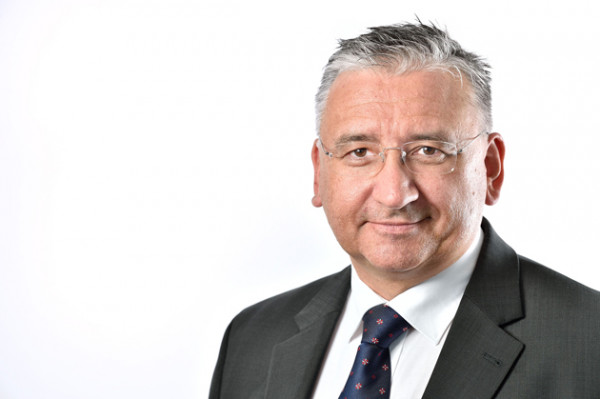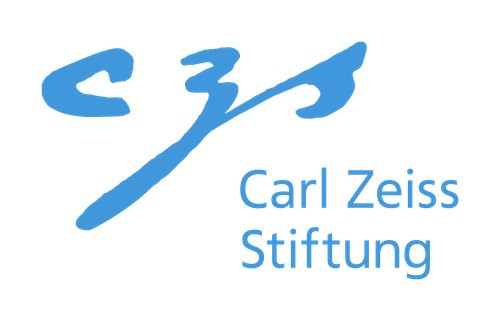The Carl-Zeiss-Foundation supports an interdisciplinary research project of the HTWG for three years with up to 1 million Euros. One of the cooperation partners is Charité Berlin.
Konstanz, November 2020. The Carl-Zeiss-Foundation supports an interdisciplinary research project of the HTWG for three years with up to 1 million Euros. One of the cooperation partners is Charité Berlin.
Can computer science contribute to increasing sleep quality? Prof. Dr. Ralf Seepold can give those who are now teasing that discipline is robbing them of their sleep. Together with his team and international partners, he has been researching for many years how computer science can support physicians in treating patients. One focus is the non-invasive monitoring of sleeping patients. The Carl-Zeiss-Foundation has now approved a research proposal from him within the framework of its Transfer funding program. The interdisciplinary project is entitled "Non-invasive system for measuring sleep quality-relevant parameters". For three years, the funding will amount to up to one million euros.
Sleep quality influences general health condition
"Around a quarter of Germans have the feeling of sleeping badly, and from the age of 40, the number continues to rise," says Prof. Seepold. Older people or people living alone are significantly affected. Lying awake at night is not only merely annoying: lack of sleep reduces performance, can lead to physical illnesses, psychological problems, and - in extreme cases - to premature death. However, research of the sleep quality in the sleep laboratory are complex and only limited possible. The goal of the research project at the HTWG Konstanz is to develop a sensor box that can be used at home for longer periods if necessary and supports the physician in the monitoring and diagnosing patients. The sensor box is placed under the mattress. No camera monitoring or cabling is necessary. In addition to the development, the box's use will be tested and the data analyzed during the project.
Sensors record vital data
"By this support, our research for the contactless analysis of vital data, like for example, the sleep/wake condition, respiration or the heart rate during sleeping, and the diagnostics for the sleep medicine is strengthened, explains the project manager Professor Dr. Ralf Seepold.

The computer scientist Prof. Dr. Ralf Seepold has been working for many years on personalized medicine in sleep research, on innovative technologies for signal acquisition, processing and evaluation, and algorithms and systems for telemedicine, among others in Moscow and Seville. He is also himself a member of the German Society for Sleep Research and Sleep Medicine (DGSM). Photo: Patrick Pfeiffer
Interdisciplinary project
The HTWG team includes Prof. Dr. Clotilde Rohleder and Prof. Dr. Markus Eiglsperger. Prof. Eiglsperger, also from the Faculty of Computer Science, is concerned with software architecture and the development of mobile and web applications with a particular focus on cloud technologies and software testing. In this research project, he is responsible for the development of a mobile app. It should be user-friendly for different user groups, patients, and doctors, and suitable for a wide range of mobile devices (cell phones, tablets, etc.) from different manufacturers. Prof. Dr. Clotilde Rohleder from the Faculty of Economics, Social Sciences and Law will contribute her expertise in Product Lifecycle Management (PLM), which will be important for project management as well as for connecting the system to external platforms and thus for its later use.
Besides, further internal university collaborations are being sought: For example, with the Open Innovation Lab, the Ubiquitous Computing Lab, but also with ECOLAR-Home from the architecture courses, with which Prof. Seepold is already cooperating on questions of intelligent living in the sense of Assisted Living.
Cooperation with the Charité
"The topic of 'sleep analysis' is currently highly relevant, and several relevant research groups are working on it," explains Prof. Seepold. In the project of the HTWG, the collection of sleep data is the focus of the analysis. Since sleep behavior is to be studied in a purely non-invasive way, the system to be developed will present some challenges for hardware and software. After all, it should be possible to filter out, for example, respiration and heart rate data from a signal data stream. Subsequently, a medical analysis of the data is possible, and artificial intelligence methods will also be used here. To align the development with the needs of physicians, the team works closely with the research group of the interdisciplinary sleep medicine center of the Charité in Berlin, the largest university hospital in Germany.
In addition to the Charité, there are other external partners such as the University of Applied Sciences in Kempten and Reutlingen universities. Cooperative doctoral programs are possible with project partners such as the Universities of Ancona (Italy), Seville (Spain), Sorbonne (France), and the Charité. Partners from practical application fields, such as the AWO Kreisverband Schwarzwald-Baar e.V. or the association SmartHome & Living Baden-Württemberg e.V. complete the consortium.
Integration into teaching
"The HTWG attaches particular importance to strengthening research and transfer in digitization," explains Prof. Dr. Gunnar Schubert, Vice President Research and Transfer. The support provided by the foundation also makes it possible to train young scientists. Subsequent doctorates and integrating the results into the students' education are extremely important for current and future careers. "The project offers many topics for inter-faculty study programs and theses," says Prof. Ralf Seepold, with a particular focus on health informatics, applied informatics, automotive information technology, and business administration. Further ideas, such as the establishment of a start-up from the project, are also supported. Finally, the project has great social relevance, says Seepold: "Improved diagnostics and therapeutic support will make an important contribution to sleep health, and will support the use of personalized medicine to improve quality of life, health and performance".
Photo: Robin Higgins, Bella H./Pixabay

About the Carl Zeiss Foundation
The Carl Zeiss Foundation’s mission is to create an open environment for scientific breakthroughs. As a partner of excellence in science, it supports basic research as well as applied sciences in the STEM subject areas (science, technology, engineering and mathematics). Founded in 1889 by the physicist and mathematician Ernst Abbe, the Carl Zeiss Foundation is one of the oldest and biggest private science funding institutions in Germany. It is the sole owner of Carl Zeiss AG and SCHOTT AG. Its projects are financed from the dividend distributions of the two foundation companies.
The link to the HTWG article is this.

